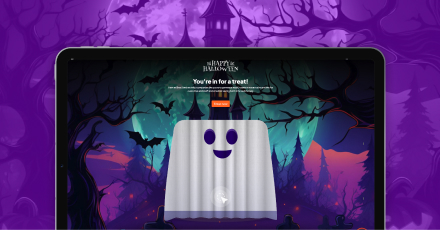Stress management is an essential skill in modern life, with the need to balance work, family obligations, and personal time. A study by Colonial Life surveyed 1,505 full-time U.S. employees and revealed that stress and anxiety have deeply permeated the workplace, taking a significant toll on both employees and their employers. The survey reveals that stress is costing U.S. companies billions of dollars each week in lost productivity. This article delves into the Colonial Life study, examining the urgent need for employers to address the issue of stress in the workplace and offering practical solutions.
The Impact of Stress on the Workplace

Stress affects more than the individual. It creates widespread challenges for organizations. According to the Colonial Life study, over 20% of employees spend more than five hours per week worrying about personal stressors at work. Another 50% admitted to losing between one and five hours of productive time due to anxiety and worry. These distractions lead to significant financial losses for companies, with approximately 128.5 million full-time U.S. employees earning an average hourly wage of $21, these lost hours equate to billions in lost productivity and revenue each year.
The financial toll is only part of the problem. Stress takes a heavy toll on employees’ health and well-being too. Stress often triggers physical symptoms such as headaches, fatigue, and burnout, all of which can result in higher absenteeism and lower performance at work. Laurie Mitchell, assistant vice president for global wellbeing and health at Colonial Life, emphasizes the crucial need for employers to recognize the link between stress and reduced workplace productivity. She stresses that employees experiencing significant pressure are less productive and less engaged in their work, making stress management a critical business concern.
The Leading Causes of Employee Stress
The Colonial Life survey identifies jobs and finances as the top two stressors for employees. This is not surprising given the growing uncertainty in various industries and the rising cost of living in many parts of the country. Employees are increasingly worried about job security, performance expectations, and financial stability – concerns that often follow them into the workplace.
However, it’s not only work and money that weigh on employees’ minds. Three of the top six stressors identified in the survey were health-related. Concerns about personal health, the health of family members, and eldercare responsibilities are key stressors that many employees struggle to manage alongside their work obligations.
This focus on health-related stress is important because stress and poor health are interlinked. Chronic stress can exacerbate existing health conditions, leading to higher healthcare costs and more sick days taken. As employees struggle to balance the demands of their work with personal and family health issues, their mental well-being suffers, creating a cycle that further diminishes productivity.
The Hidden Costs of Workplace Stress

The financial impact of stress on a company goes beyond lost productivity. There are other hidden costs associated with having a stressed workforce. Employees dealing with high levels of stress are more likely to take sick leave, be disengaged, and even consider leaving the company. The Colonial Life study found:
- 41% of employees said stress made them less productive.
- 33% said stress led them to feel less engaged with their work.
- 15% of employees considered looking for a new job as a direct result of workplace stress.
- 14% admitted that stress contributed to more frequent absenteeism.
These statistics highlight how stress can erode employee loyalty and job satisfaction, leading to higher turnover rates. High turnover is particularly costly for companies, as the time and resources required to recruit, hire, and train new employees can be substantial. Disengaged employees also impact team morale and the overall workplace environment, further compounding the issue.
While traditional methods like financial incentives and flexible schedules can help reduce workplace stress, innovative solutions like gamification are proving to be highly effective. Gamification offers a fresh approach to improving employee morale and well-being while aligning with company goals.
The Role of Gamification in Boosting Employee Morale and Alleviating Stress
In today’s high-pressure work environments, gamification is one of the most effective ways to improve employee morale and reduce stress. Introducing game-like elements into everyday tasks and employee recognition programs allows employers to create a more engaging and enjoyable workplace. Gamification, which involves using rewards, competitions, and challenges, taps into our natural drive for achievement, connection, and growth.
BeeLiked’s gamified promotions transform traditional incentives, enabling companies to offer personalized, interactive experiences that directly support their strategic goals. This helps improve company culture, creating a more enjoyable workplace environment and boosting overall employee experience.
The Psychology of Gamification and Stress Relief
Gamification works because it taps into intrinsic motivators – those key psychological drivers that shape how people behave. Here’s how gamification helps employees manage stress and stay engaged:
- Autonomy: Games often give players a sense of control over their actions. BeeLiked’s promotions can provide employees personalized experiences based on their preferences, helping them feel more in control. Employees can be shown promotions or rewards that align with their needs, reducing feelings of stress or pressure.
- Mastery: Gamification helps employees track their progress through badges, points, or other visible markers of achievement. BeeLiked’s personalized currency feature allows companies to reward employees when they meet targets, complete training, or exhibit positive behaviors. These real-time rewards create a sense of accomplishment, boosting confidence and reducing anxiety.
- Social Recognition: Games often include elements of competition or cooperation, where players can receive recognition from peers. BeeLiked enables companies to monitor and reward positive behaviors in real time, ensuring employees are recognized for their contributions. This fosters a sense of community and connection, helping alleviate isolation and stress.
- Purpose: Gamification connects everyday tasks with bigger company goals, turning work into a more meaningful and rewarding experience. For instance, revamping the onboarding and training process with BeeLiked’s gamified solutions helps new hires feel more connected to the company’s mission. This approach makes orientation more engaging and reduces workplace stress, while also ensuring that new employees understand and align with the company’s objectives.
How Gamification Alleviates Stress
Gamification instantly eases stress by transforming routine or challenging tasks into engaging, interactive experiences. For example, instead of seeing a long to-do list, employees can participate in challenges that reward them for completing tasks in a fun, competitive way. BeeLiked’s gamified reward process helps shift the focus from anxiety to achievement, reinforcing a positive mindset. Games of chance allow employers to distribute rewards more equitably, lowering costs and ensuring employees feel recognized.
Additionally, offering personalized promotions, like fitness incentives or mental health support through gamified systems, can further reinforce healthy habits and reduce stress. Employees who feel supported by these interactive reward systems are more likely to engage positively with their work, leading to lower stress levels and improved morale.
What Employers Can Do to Support Stressed Employees

Recognizing the causes and costs of stress is only the beginning. Employers then need to take concrete action to address it. Laurie Mitchell suggests a range of strategies that employers can implement to better support their employee’s mental and emotional well-being:
- Enhance Access to Employee Assistance Programs (EAPs): EAPs provide confidential counseling and support for personal and work-related issues but are often underutilized. Employers need to raise awareness about these programs and ensure employees feel comfortable accessing them.
- Offer Telehealth Services and Mobile Health Apps: As the demand for mental health services continues to rise, telehealth services for behavioral health have become increasingly popular. Mobile apps focused on mindfulness and stress reduction can also be helpful tools for employees to manage their mental health. BeeLiked can complement these efforts by offering gamified wellness challenges that motivate employees to engage with stress-relief resources through interactive and rewarding experiences.
- Promote Work-Life Balance: Flexible work arrangements, such as remote work or flexible hours, help employees better manage personal responsibilities while maintaining professional productivity. BeeLiked’s gamified employee engagement solutions can track individual goals and performance progress, allowing for a more balanced approach to managing work and life responsibilities. Additionally, generous PTO and leave programs, including parental leave, give employees the time they need to recharge and return to work with renewed focus.
- Invest in Wellness Programs: Employers can support their workforce by offering comprehensive wellness programs. These may include physical fitness initiatives, mental health resources, and financial well-being programs to address the multifaceted nature of employee stress. BeeLiked’s gamified systems can integrate with wellness programs by encouraging participation in fitness challenges or mindfulness activities, using rewards to reinforce healthy habits and reduce stress.
- Foster a Supportive and Psychologically Safe Work Environment: Creating a culture where employees feel safe to voice concerns without fear of stigma is essential. Employers should train managers to recognize signs of stress and burnout and ensure they know how to direct employees to appropriate resources.
- Ensure Effective Communication: Many companies already offer helpful resources, but they may go underutilized simply because employees are not aware of them. Clear and consistent communication through various channels (such as email, intranet, or staff meetings) is critical to ensuring employees know what support is available to them. BeeLiked can also help here by delivering personalized employee promotions and updates through gamified systems, ensuring that important information about wellness initiatives reaches everyone effectively.
Leadership’s Role in Managing Workplace Stress
Leaders play a vital role in shaping workplace culture and setting expectations for managing stress. Leaders should lead by example, demonstrating healthy work habits like taking breaks, managing workloads, and maintaining boundaries between work and personal time. When managers are open about their own stress-management strategies, these behaviors are normalized for the rest of the team.
Additionally, leaders should create spaces where employees feel comfortable sharing their experiences and offering feedback on what support would help them most. This can be done through regular surveys, one-on-one meetings, or team discussions. Listening to employees helps leaders grasp what’s really causing stress in the workforce, allowing them to make smarter choices to improve working conditions.
The Long-Term Benefits of Addressing Workplace Stress

Investing in stress management is not a short-term fix – it provides long-lasting benefits for both employees and employers. A workforce that feels supported is more likely to be engaged, productive, and loyal. This, in turn, leads to lower turnover rates, reduced absenteeism, and a healthier overall work environment.
Proactively addressing employee well-being helps companies cut hidden stress-related costs while also building a healthier, more resilient workplace culture. Over time, the investment in employee mental health and well-being will pay off in the form of greater job satisfaction, improved performance, and a more robust bottom line.
Alleviate Workplace Stress With BeeLiked’s Gamified Solutions
Workplace stress poses a significant challenge for both employees and employers, but it’s a challenge that can be addressed effectively. Tackling the root causes of stress through flexible schedules, wellness programs, and clear communication creates a healthier, more productive work environment. Prioritizing employee well-being results in stronger engagement, improved morale, and a more motivated workforce.BeeLiked’s gamified solutions are already helping many organizations achieve this balance. By personalizing employee promotions, tracking performance, and distributing rewards in real-time, BeeLiked supports employees in ways that directly improve their well-being. These programs can seamlessly integrate wellness initiatives, such as stress-relief challenges or mental health check-ins, offering a practical and engaging approach to reducing workplace stress. Ready to take the next step towards a healthier, more engaged team? Learn how BeeLiked’s gamified employee engagement solutions can make a difference in your workplace today.
















